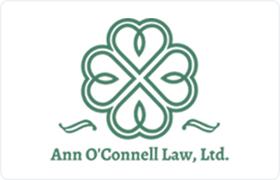Elk Grove Village Divorce & Family Law Lawyer, Illinois
Sponsored Law Firm
-
 x
x

Click For More Info:
-
Ann O'Connell Law, Ltd.
526 Kedzie Street Evanston, IL 60202» view mapDivorce & Family Law Over 15 Years Of Legal Expertise
Guiding her clients through every step of their case, Ann provides responsive, compassionate, and client-focused legal advocacy.
800-746-0540
Stange Law Firm, PC
Going through a divorce or family law matter can be an emotional time. You may feel betrayed, lost or overwhelmed. Having an attorney that can relate ... (more)
Joseph Seligmann
✓ VERIFIEDJoseph Seligmann is a practicing lawyer in the state of Illinois. Attorney Seligmann received his J.D. from John Marshall Law School in 1991.
Jonathan G. Anderson
✓ VERIFIEDAttorney Jon Anderson is a divorce & family law attorney in Schaumburg, IL. He concentrates his practice on child custody, child support, adoption, & ... (more)
Carrissa Alvers
✓ VERIFIEDCARRISSA M. ALVERS is Of Counsel to Klein, Daday, Aretos & O’Donoghue, LLC. Ms. Alvers received her law degree from Chicago-Kent College of Law in 1... (more)
Terry Slaw
✓ VERIFIEDTerry Slaw is an experienced lawyer who has been working in Criminal and Traffic law since 1982.
FREE CONSULTATION
CONTACTFREE CONSULTATION
CONTACT Ann O'Connell Evanston, IL
Ann O'Connell Evanston, IL Practice AreasExpertise
Practice AreasExpertise





